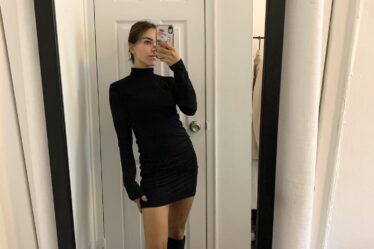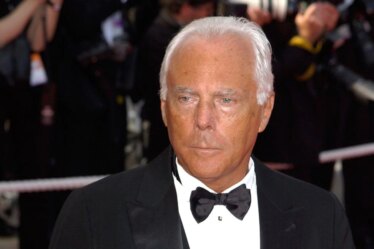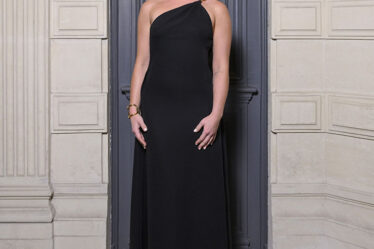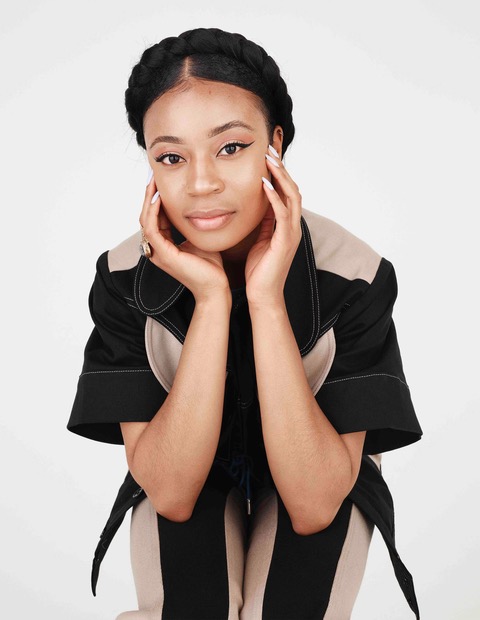
In the aftermath of her much-praised showcase at AW24 London Fashion Week, the trailblazing designer and multi-disciplinary artist offers a glimpse into the deep thinking behind her brand.
Photography by Rankin

Since launching her eponymous brand in 2018, shortly after graduating from Central Saint Martins, Tolu Coker has been building a reputation as a designer that intertwines critical narratives into the fabric of her collections. The latest, for Autumn Winter, named Broken English, brought a street market to the runway, paying homage to street hawkers. “I’m telling stories from the communities, people, and experiences that I’m privileged to encounter, whilst maintaining my autonomy and viewpoint as an artist,” she tells Wonderland.
A powerful voice from London’s bustling roster of emerging designers setting the tone for what’s next in British fashion — think Saul Nash, Martine Rose, Grace Wales Bonner and Bianca Saunders — Coker is finding space in the industry’s crowded room, telling stories from her unique perspective, heart and creativity aligned to her roots. “My work is an extension of me,” she says. “Along with spotlighting closely-tied communities, it reflects the perspective of a British-Nigerian woman.”
Coker’s approach to fashion feels refreshing, purposeful, and drenched in intention. Every step of the way is thought-through to represent not only her essence as a designer, but also her personal values. Questioning the West’s approach to sustainability, she designed Broken English, her most nuanced, thorough, and elaborate project to date, as a collection meant to spark conversations around global equity — built with an intersectional mindset and the knowledge that eco-conscious initiatives and diversity must go hand in hand.
“[Sustainability is] an integral aspect of my process, not just a ‘part of’ or ‘a step’ within it,” she explains. “It should serve as the foundation for a comprehensive ecosystem of approaches, intentions, and values.” This requires a continuous process of self-reflection, which Coker approaches head on. “I’m continuously learning and evolving my understanding of diverse cultural perspectives, experiences, consequences, and solutions related to sustainable practices.”
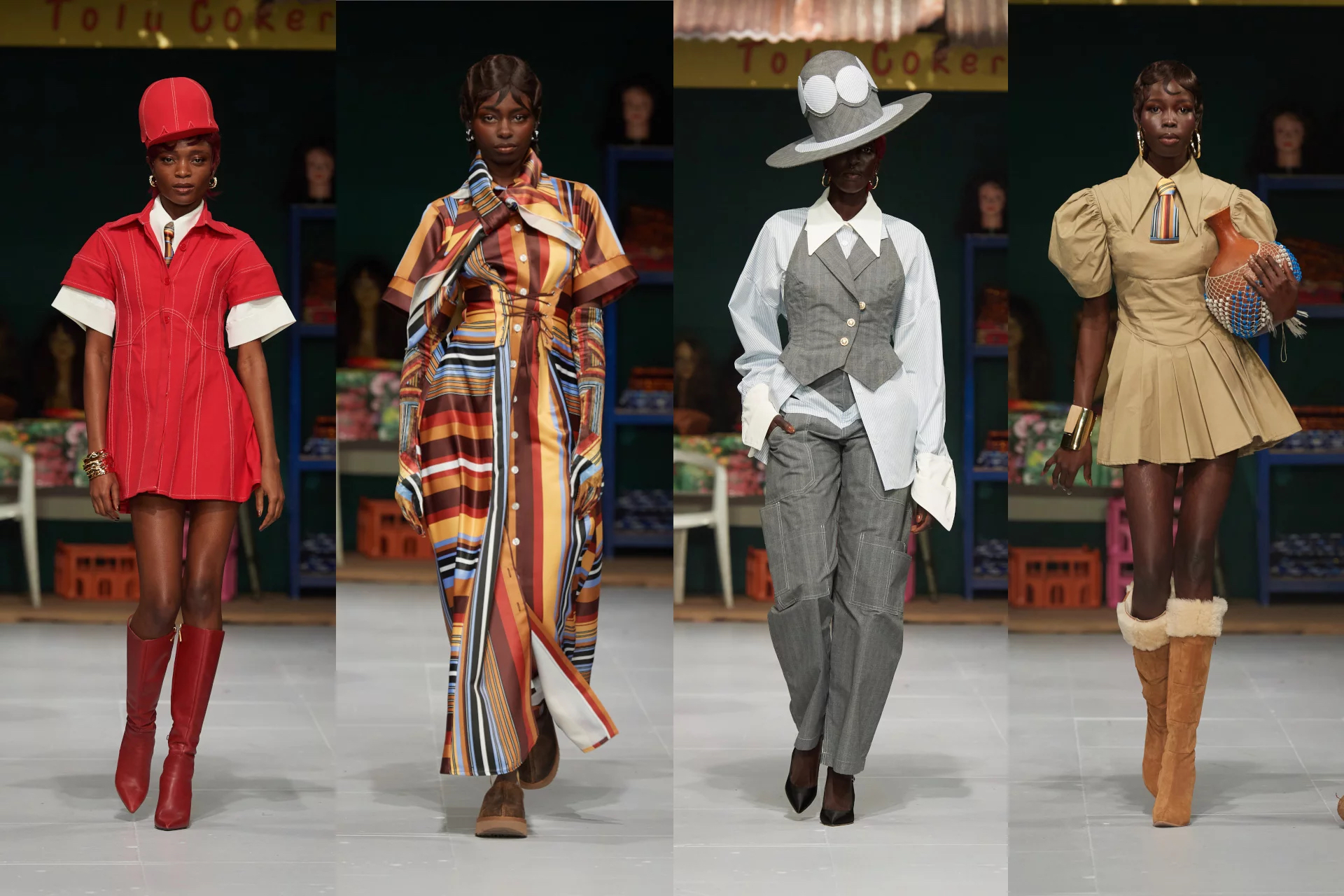
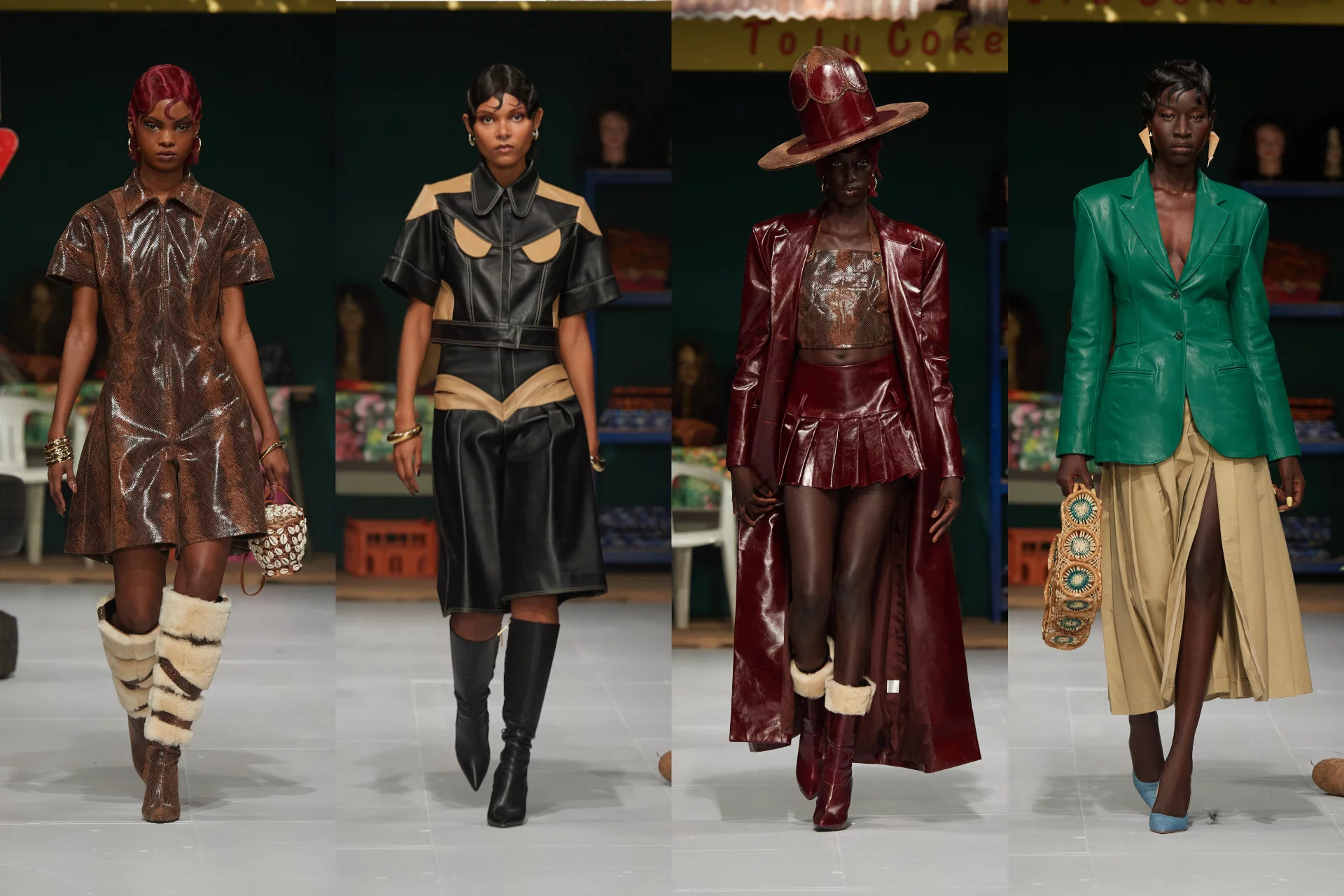
Courtesy of Tolu Coker.


Including restyled pieces from her previous work, the AW24 collection is a deliberate expression of her belief in creating timeless pieces that transcend fleeting trends. “It feels organic to the brand,” she says. “It’s crucial to showcase that newness does not render existing pieces irrelevant. I want people to view pieces as heirlooms – possessions they treasure, value, and build upon, rather than discard for the next ‘hot’ thing.”
“It’s not merely about representation and visual diversity; it’s about ensuring that fashion genuinely reflects the stories, values, and communities it often champions aesthetically,” she continues. “It’s not just about increasing the visibility of diverse models on the runway. It’s about amplifying the diverse narratives of the communities they represent – including their producers, artisans, and historians.”
With this in mind, the designer sought to challenge the typical Western perception of street vendors, celebrating their identities by presenting their fashion narratives in a refreshing light. “I wanted to spotlight issues in a way that gave dignity to those who have to hawk,” she explains. “I felt a responsibility, as a woman of the African diaspora born and raised in London, to use Fashion Week as a platform to spotlight pressing issues.”
Her models, adorned in reimagined hawker attire – sophisticated power suits – radiated feminine strength and empowerment, with West African-inspired waistcoats and kaftan-skirts. The final touch? Heeled UGG boots, part of the designer’s collaboration with the iconic brand. With tall, spike heels courtesy of Coker, the cosy boots reached new heights on the runway. “UGG encouraged me to reimagine and reinterpret their aesthetic and what people typically attach to it,” she says, reflecting on the resonance between the collaboration and her AW24 collection. “Just as I reinvented UGG’s signature styles, street vendors transform Western waste into innovative products.”
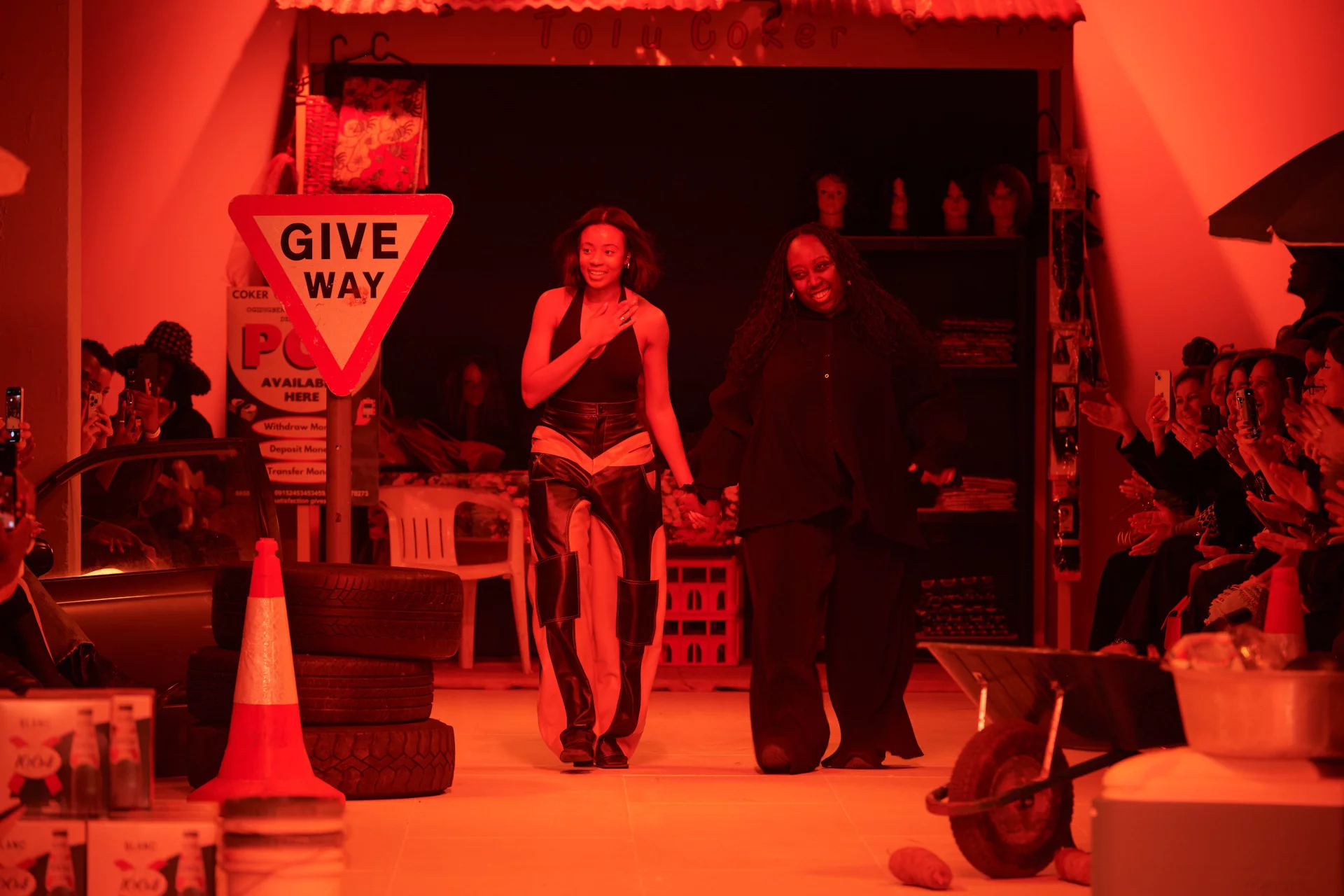
Courtesy of Tolu Coker

As for what moves her craft these days, Coker has been finding solace and inspiration in a different sense. “The sonic landscape can breathe life into stories, infusing them with excitement and depth,” she tells, trying to put into words her appreciation for music and sounds. She credits artists Tiwa Savage and Seyi Vibes, who featured in her AW24 show soundtrack, as current favourites. “The archival sounds from the 60s and 70s – Afro funk, Fela Kuti and The Funkees feel reflective of their world at that time, but also feel really relevant to me now.”
For Tolu Coker, it’s clear fashion transcends the runway – it’s a tool for advocacy, storytelling and driving transformative change. How to sum her up? “I never impose a predetermined aesthetic on my work,” she says, “Storytelling takes precedence. Focusing solely on aesthetics can lead to the appropriation of stories to fit a predetermined narrative. I need to stay true to myself.”

